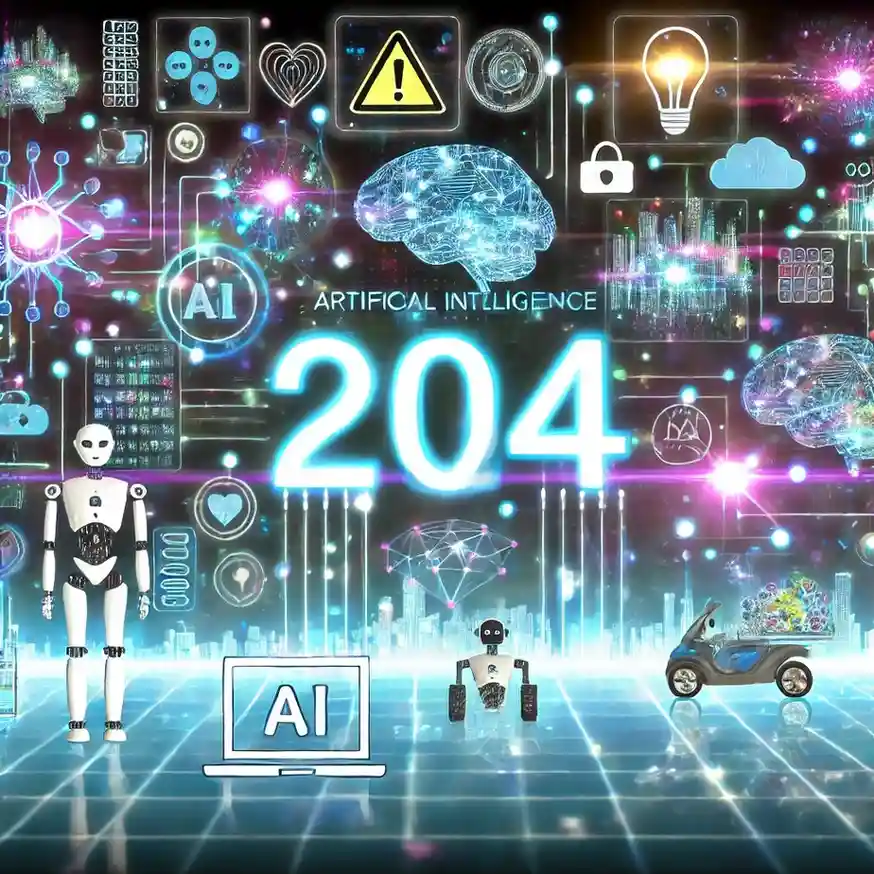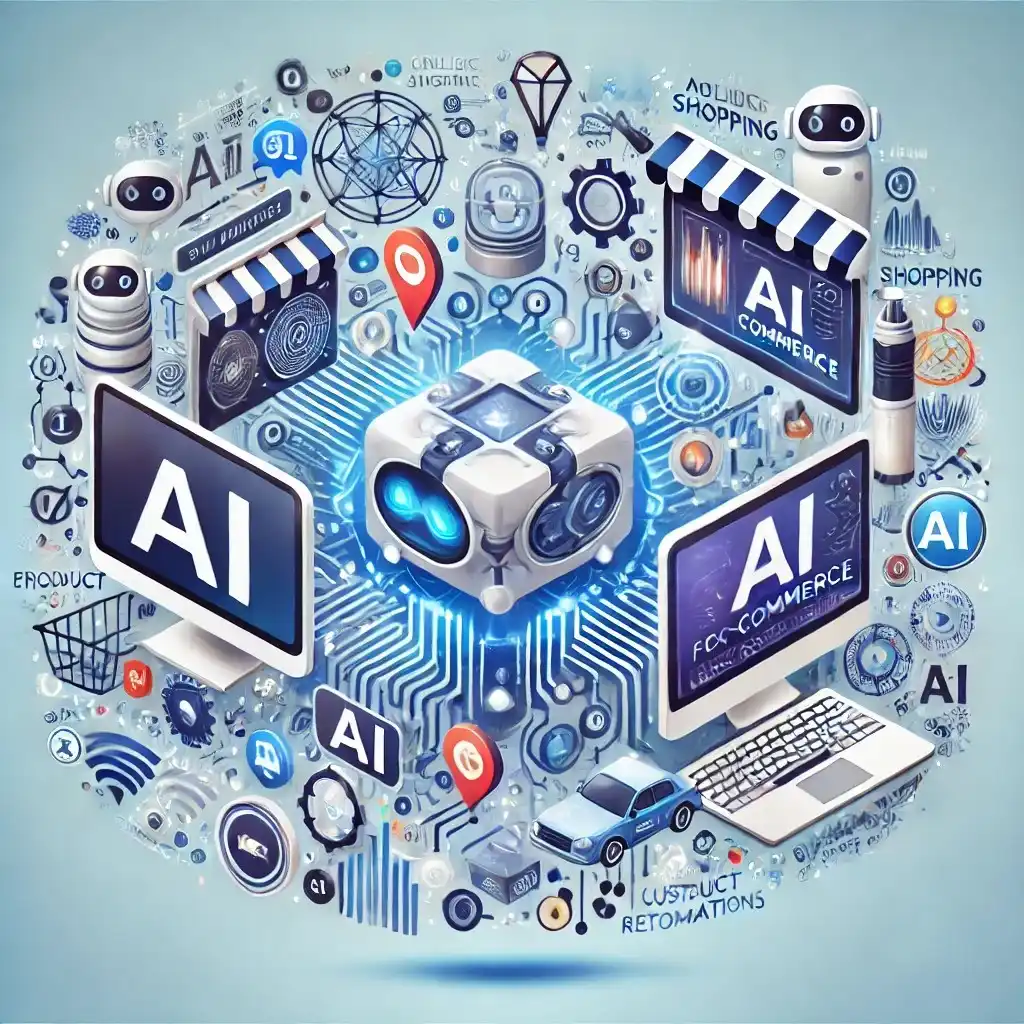In today’s rapidly evolving digital landscape, artificial intelligence (AI) has become an essential tool for businesses of all sizes. For small businesses, AI offers unprecedented opportunities to streamline operations, increase efficiency, and scale processes that were once too time-intensive to handle manually. If you’re a small business owner looking to stay competitive, automating with AI is a powerful way to save time, reduce costs, and improve customer experiences. This guide will take you through how small businesses can leverage AI for automation, along with actionable examples and tools to get started.
1. Understanding AI for Small Business: What Can It Do?
Artificial intelligence is a broad field with applications that range from predictive analytics to chatbots and process automation. For small businesses, AI can handle repetitive, manual tasks, making day-to-day operations smoother and freeing up valuable time to focus on growth. Here are some of the ways AI can transform a small business:
- Automated Customer Support: Use AI-driven chatbots and virtual assistants to handle common customer queries and support tasks.
- Personalized Marketing: AI tools can analyze customer data to create more effective marketing strategies and tailor recommendations.
- Predictive Analytics: With AI, small businesses can predict trends, customer preferences, and inventory needs more accurately.
- Process Optimization: AI can streamline scheduling, project management, and workflow, boosting efficiency in areas like accounting and HR.
- Sales Automation: From lead scoring to automated outreach, AI can help streamline sales efforts and identify promising opportunities.
2. Customer Service Automation
Customer service is an area where small businesses can see immediate benefits from AI automation. AI-powered chatbots and virtual assistants are now affordable and sophisticated enough to handle many customer inquiries, provide product information, and even complete transactions.
- Using AI Chatbots: Chatbots like Intercom, Freshdesk, and Tidio can assist customers 24/7. They are pre-programmed with responses to frequently asked questions and can learn over time to offer more relevant answers. They’re excellent for small businesses because they help maintain customer support without needing a full-time staff.
- AI-Driven Customer Service Insights: Tools like Zendesk and HubSpot analyze customer interactions to reveal trends and insights. This helps businesses improve service and anticipate customer needs.
- Response Personalization: AI can personalize customer interactions by referencing past purchases, preferences, or service issues, improving the quality of support.
3. Marketing Automation
One of the most significant advantages AI offers is the ability to analyze customer behavior and help small businesses target the right customers with the right messages. Marketing automation tools powered by AI can improve campaign effectiveness, tailor messaging, and enhance customer engagement.
- Automated Email Marketing: AI tools like Mailchimp and SendinBlue allow businesses to set up automated email campaigns based on user behavior. AI analyzes data to create personalized email journeys, segmenting customers according to interests, purchase history, and engagement.
- Social Media Scheduling and Analysis: AI-powered tools such as Hootsuite, Buffer, and Sprout Social help schedule posts across multiple social media channels and analyze engagement trends. This helps small businesses maintain a consistent online presence without manually posting daily.
- Predictive Marketing with AI: Tools like HubSpot and Marketo use AI to analyze customer data and predict purchasing behaviors, allowing businesses to craft marketing campaigns that target the right customer at the right time.
4. Sales and Lead Generation
AI-powered automation in sales and lead generation can streamline the process of identifying and engaging potential customers. Many sales automation tools now come with AI capabilities, enabling small businesses to reach more leads with less manual effort.
- Lead Scoring and Management: AI tools like Salesforce Einstein and Pipedrive assess and prioritize leads based on data points such as engagement history, demographic information, and previous interactions. This helps sales teams focus on high-quality leads, increasing conversion rates.
- Automated Outreach: Platforms like HubSpot and Outreach.io allow businesses to automate email sequences, follow-ups, and outreach to nurture leads over time. AI tailors the timing and content based on recipient behavior, improving open rates and engagement.
- Voice and Conversation Analysis: AI can transcribe and analyze sales calls, identifying keywords and sentiments that indicate buyer interest. Tools like Gong and Chorus are widely used for this purpose, allowing businesses to gain insights into customer needs and tailor their pitches accordingly.
5. Accounting and Financial Management
Managing finances and bookkeeping can be time-consuming for small business owners. AI-powered automation in accounting can make it much easier to handle day-to-day financial tasks, from invoicing to expense tracking.
- Automated Bookkeeping: Tools like QuickBooks and Xero leverage AI to automate bookkeeping tasks, categorizing transactions, and reconciling accounts. This reduces human error and ensures that financial records are up-to-date.
- Expense Management: Expensify and Receipt Bank are AI-powered tools that allow employees to scan receipts, which the software then organizes and categorizes automatically, simplifying expense reporting.
- Cash Flow Forecasting: AI-based forecasting tools like Fathom and Jirav can help small businesses project cash flow by analyzing historical data and providing insights into future financial health. This is especially useful for making informed business decisions and preparing for seasonal fluctuations.
6. Inventory and Supply Chain Management
For businesses that sell products, managing inventory can be a significant challenge. AI-powered inventory management solutions help optimize stock levels, reduce costs, and improve supply chain efficiency.
- Predictive Inventory Management: Platforms like TradeGecko and Zoho Inventory use AI to predict demand based on trends, seasonality, and historical data. This helps small businesses avoid stockouts or overstocking, improving cash flow and customer satisfaction.
- Supply Chain Optimization: AI-based tools can streamline logistics, minimizing costs related to storage and transportation. For instance, Llamasoft and Kinetic optimize route planning, reduce delivery times, and provide real-time tracking.
- Automated Reordering: Many inventory systems now include AI capabilities that trigger automatic reordering when stock levels fall below a certain threshold, preventing disruptions in business operations.
7. AI for HR and Employee Management
Managing a team is essential but can be challenging without the right tools. AI can help automate many human resource tasks, from recruiting to employee engagement.
- Recruiting and Screening: AI tools like HireVue and Breezy HR automate resume screening, helping businesses find qualified candidates faster by matching resumes with job requirements.
- Employee Onboarding: BambooHR and Workday offer AI-powered onboarding workflows, automating paperwork, training assignments, and introductions to the company. This creates a smoother onboarding experience for new employees.
- Performance Tracking and Feedback: AI-driven platforms such as 15Five and Culture Amp enable businesses to automate performance evaluations, track goals, and gather employee feedback, helping to foster a culture of continuous improvement.
8. AI-Driven Project Management
Small businesses often manage multiple projects with limited resources. AI can help streamline project management, automate repetitive tasks, and keep teams on track.
- Automated Task Assignment: AI-powered tools like Asana and Monday.com can assign tasks based on team availability, skill level, and project requirements. This reduces the need for manual intervention in task distribution.
- Predictive Project Timelines: Wrike and ClickUp use AI to predict potential delays based on project data, allowing businesses to allocate resources effectively and meet deadlines.
- Enhanced Collaboration: AI features in tools like Microsoft Teams and Slack provide real-time transcription, task reminders, and meeting summaries, improving communication and keeping everyone aligned.
How to Get Started with AI Automation in Your Small Business
- Identify Repetitive Tasks: Look for tasks that are repetitive, time-consuming, and prone to error. These are often the best candidates for automation.
- Choose the Right Tools: Select AI tools based on your business needs and budget. Many platforms offer free trials, so test them to see which best suits your workflow.
- Start Small and Scale: Begin by automating one or two tasks, then expand as you become comfortable. This allows you to refine processes and address any challenges as they arise.
- Monitor and Optimize: AI systems improve over time with data, so regularly review and tweak the automation to maximize its effectiveness.
Conclusion: AI as a Game-Changer for Small Business Automation
AI automation is no longer reserved for large corporations with big budgets; small businesses can now harness the power of AI to streamline operations and improve productivity. By automating customer service, marketing, sales, finance, inventory, HR, and project management, small business owners can focus on growing their business and providing value to their customers.
The key to successfully integrating AI is to start small, choose the right tools, and continuously optimize your processes. AI automation can be a game-changer, allowing small businesses to compete effectively and adapt to the ever-changing demands of the market. With these strategies in hand, you’re ready to transform your small business and take advantage of AI’s vast potential.
4o

